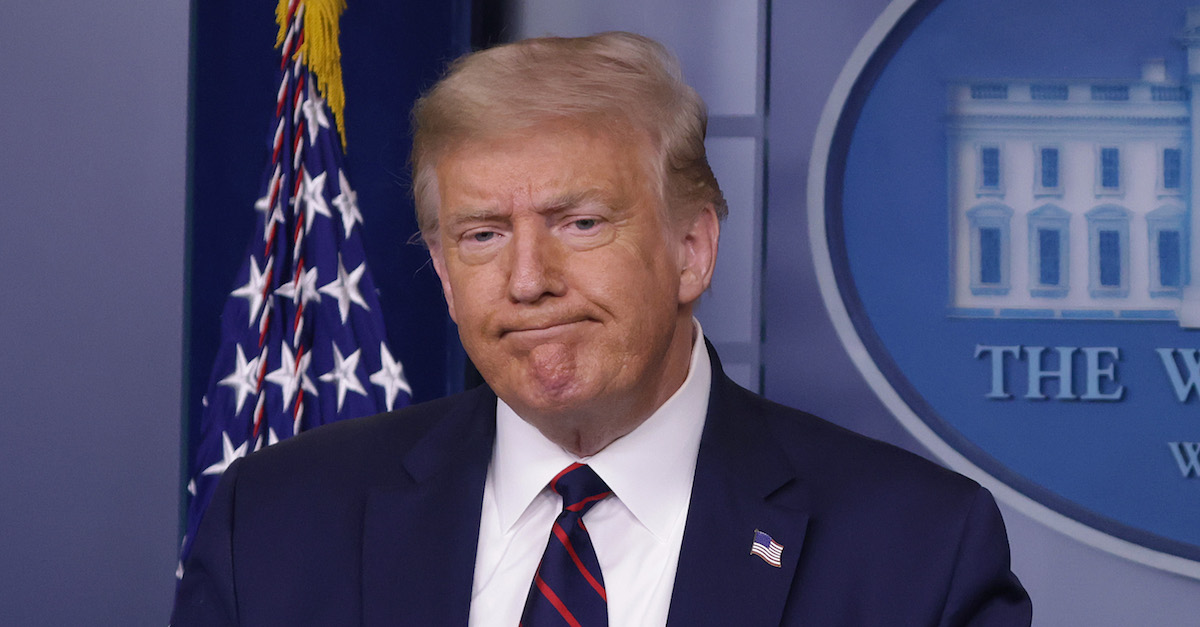
Understandably, news of excerpts from Bob Woodward’s new book about what #TrumpKnew appear rather damning for President Donald Trump. According to excerpts published in the Washington Post online, Trump said in a February 7 call, “You just breathe the air and that’s how it’s passed”—referring to coronavirus. Trump continued on to say, “And so that’s a very tricky one. That’s a very delicate one. It’s also more deadly than even your strenuous flu,” and even emphasized, “This is deadly stuff.”
Without question, this seemingly objective evidence indicating that Trump intentionally and egregiously downplayed the seriousness of COVID-19 is alarming. As the presidential election approaches and Americans grapple with life amid a pandemic, there is likely to be some serious fallout. Some, though, such as California Senator Ted Lieu, a Democrat, have even suggested that Trump’s misconduct constitutes reckless homicide.
Having read more of the excerpts in the Woodward book where @realDonaldTrump is on tape, I’ve concluded this is not just dereliction of duty by @POTUS. Trump repeatedly lied to the American people and that resulted in preventable deaths.
This is reckless homicide.#TrumpKnew https://t.co/c7SziWD3CK
— Ted Lieu (@tedlieu) September 9, 2020
Is that really true?
In times of crisis, hyperbole rarely helps, and now is no exception. While Trump’s conduct could fairly be deemed extreme mismanagement, it doesn’t rise to the level of criminal homicide. Here’s why.
Reckless homicide requires the killing of another person by recklessness. Trump’s actions, however egregious, just don’t fit that definition.
First, let’s talk about “killing.” As goes the general rule of crimes, some actus reus is required to prosecute a person for reckless homicide. That can mean an affirmative act, or an act of omission; but if we’re talking omission, the person who failed to do something must have had some kind of legal obligation to do that thing.
Presidents, despite their many obligations, do not have a duty to protect people from coronavirus. Sure, it would be great if they effectively managed things like pandemics – but that’s not quite the same thing as a legally-enforceable duty. There’s no statute, no case law, no condition of the job that mandates that Donald Trump to protect us all from coronavirus or anything else.
Some have opined that Trump (among others) had a duty to warn the public about the threat of the virus. In some loose way, that might be true—but any defense lawyer with a functioning mouth would argue that Trump did warn people. He held press conferences at which coronavirus was a daily talking point. And again, Trump has no legal duty to provide effective warnings about coronavirus any more than he has a legal duty to warn people about other illnesses.
Apart from the president’s legal duty being hazy at best, there’s also a problem with “recklessness” as the required state of mind. Legally, “recklessness” requires that the actor perceived the risks involved, and chose to act anyway. That would mean that Trump would need to have known that his downplaying of the seriousness of the virus was likely to cause death or serious bodily injury. That’s kind of a leap. Even a tape of Trump admitting that he purposely minimized risks does not prove that he knew people would die as a result.
Then there’s the most glaring problem with calling this “reckless homicide”: causation. To establish criminal liability for reckless homicide, a prosecutor would need to prove that Trump’s reckless inaction was at least a substantial factor in causing the death of others. That would be difficult because of coronavirus itself. Even if Trump did owe every American a legal duty (which he doesn’t), and even if his disastrous handling of the pandemic constituted a criminal act (which it wouldn’t), his mistakes didn’t cause anyone to die in the manner required under criminal law. The virus itself would constitute a sufficiently superseding cause as to bear full responsibility for any deaths in its wake. To use a simplistic analogy, you haven’t committed reckless homicide if you see a truck driving down the street and fail to warn someone who might or might not be standing in the truck’s path.
True, Trump could have helped, and he didn’t. He could have managed the messaging to be truthful and effective, and he didn’t. The remedy for that, though, exists at the ballot box or through impeachment, not in the courtroom.
[image via Alex Wong/Getty Images]
This is an opinion piece. The views expressed in this article are those of just the author.